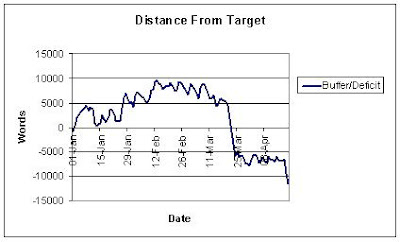I don’t enter many writing competitions. Only the free ones. And I almost never write a bespoke piece to enter a given competition. But back in January, when writing 2,700+ words a day was both fresh and daunting, I came across details for The Scotsman and National Library of Scotland Short Story Competition.
I’d never written a pure crime fiction short story, though I did have a crime fiction element in the pastiche that was my second attempt at a novel (a.k.a. MA thesis, a.k.a. The City We Forgot To Name).
Anyway, I thought having a stab at this competition would a) net me some words for the final accounting, b) take me somewhere new, and c) give me a chance to win some kudos and whisky.
The story I submitted was called, ‘The Bartender’s Glass’. It was okay, I think. It’s been a while since I read it. I sent it off well before the Jan 25 deadline…
The competition stated that all short listed authors would get a Crime Fiction Masterclass with Mr Tartan Noir himself, Ian Rankin. The entry form stated this Masterclass would take place in March.
Tomorrow it will be May, and I have not heard anything about this competition. Not that I expected to be short-listed, but if the competition has been judged and announced, I expect to either be informed (I supplied my email and mailing address), or in the very least, to be able to find who the winner was on the internet.
Nada.
Last week I emailed the National Library of Scotland (using an alias… somehow everything I wrote came out sounding like a desperate writer with nothing else to think about).
No reply.
I haven’t read the Scotsman (one of
I hate it when competitions disappear.
What I think might have happened: allowing only six weeks to read and judge the entries, inform the short listed authors and have a Masterclass was overly optimistic. The process may have been further extended when Ian Rankin went off the rails at an awards ceremony earlier this month.
Awards ceremony? Could it… No, it was in
If only I were a bit older…
And had different bits…
[I love how the story of Rankin’s indiscretion was buried on the Scotsman’s site (and probably never made the paper proper); it really is the Rankin Times.]
If this mythical Masterclass ever eventuates, and I happen to be invited, I’ll be watching the interaction between Master and Pupil closely… the young, female pupils especially. That is, if any young, attractive females write crime fiction.
If anyone out there knows what happened to this competition, I’d love to hear. Until then, I’ll assume I suck at crime fiction and stick to what I know best:
“A young male walks into a bar…”
---
Edit: Found the results today (13 May 08), though it looks like it was all resolved a month earlier. I just was googling the wrong things (like the actual name of the competition...). Only read the winning story so far. Um...





















